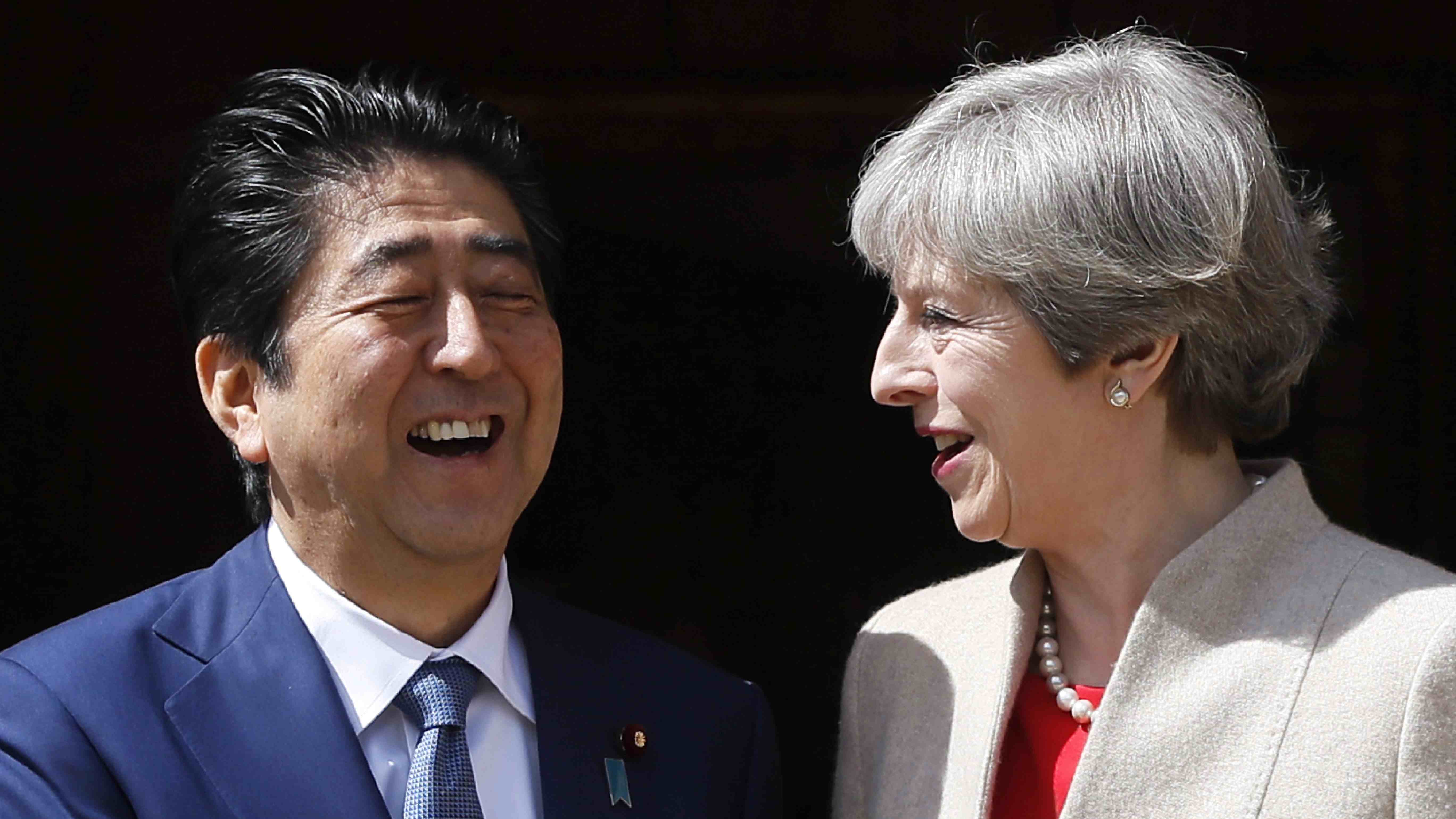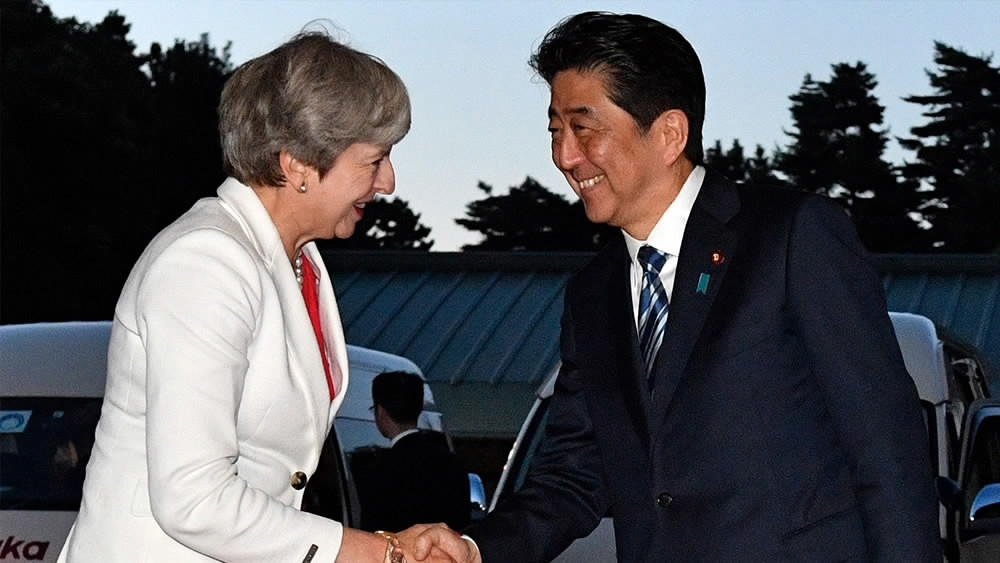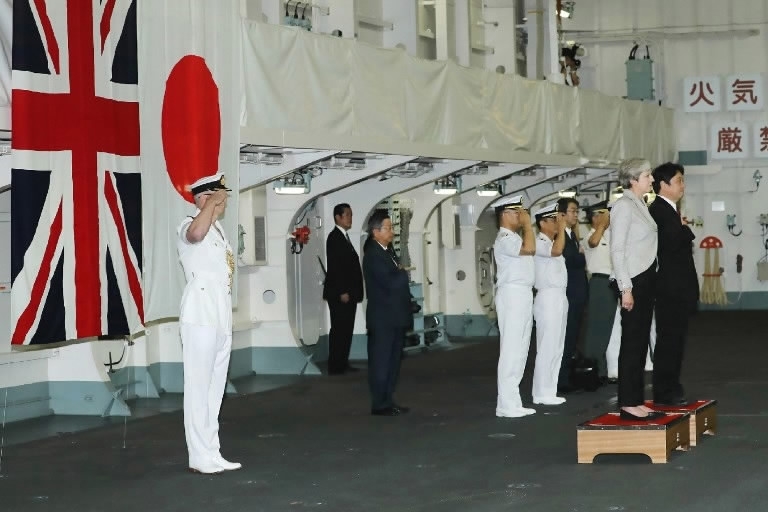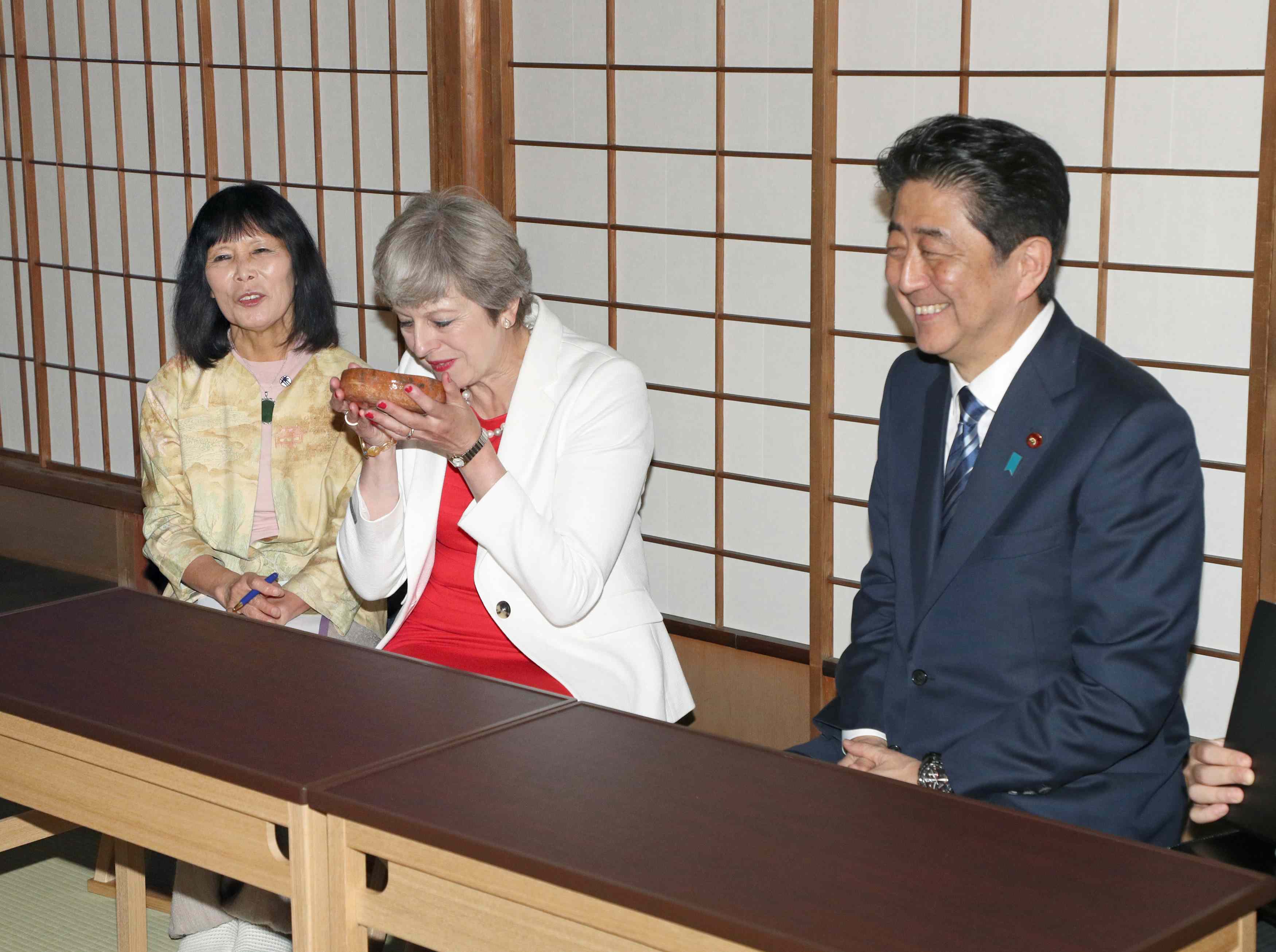
Opinions
14:37, 05-Sep-2017
Opinion: Japan, Britain huddle together for warmth
By Chen Yang from Global Times

British Prime Minister Theresa May arrived in Japan on Wednesday, to start her three-day visit to the country.
The Japanese and British governments agreed in a joint declaration released on Thursday to further strengthen pressure on North Korea and oppose any parties seeking to change the status quo in the South China Sea.
Although the two countries strengthened their security cooperation, they did not make any substantial progress in their free trade negotiations, which May sees as a priority.
Leaders of many European countries often set China as the first Asian country to visit. However, May chose to visit Japan first. Considering the special status of Japanese companies and Japanese investment in the British economy, it is not difficult to understand her decision.

This report was originally broadcast in the World Today on August 31, 2017
According to statistics of Japan External Trade Organization (JETRO), by 2015, there were 1,021 Japanese companies in Britain, the second largest in Europe after Germany's 1,600 Japanese companies.
These Japanese firms in Britain are mainly in the manufacturing industry, and have created nearly 160,000 jobs in the country. Meanwhile, Britain has always ranked second to the US in terms of Japan's foreign investment.
Therefore, since Britain faces an uncertain future after Brexit and the Japan-EU Economic Partnership Agreement will soon take effect, May must reassure Japan's economic circles and rebuild their confidence in investment in Britain to prevent the large-scale withdrawal of Japanese enterprises or capital. After all, the withdrawal of Japanese enterprises will affect the stability of British society and Japan's investment directly relates to the future of the British economy.
Strengthening Japanese-British cooperation on military security is another major theme of May's visit. In May's first visit to Japan, Japanese Prime Minister Shinzo Abe threw the British prime minister a high-level reception to signal that the two countries were quasi-allies. Abe accompanied May to experience Japanese culture in Kyoto. The Japanese defense minister accompanied May on a tour of Japan's helicopter carrier Izumo and invited her to attend a national security meeting.

Britain's Prime Minister Theresa May (podium L) and Japan's Defense Minister Itsunori Onodera (podium R) review the honor guard during their visit to Japan Maritime Self-Defense Force (JMSDF)'s helicopter carrier Izumo at JMSDF Yokosuka base in Yokosuka, August 31, 2017. /AFP Photo
Britain's Prime Minister Theresa May (podium L) and Japan's Defense Minister Itsunori Onodera (podium R) review the honor guard during their visit to Japan Maritime Self-Defense Force (JMSDF)'s helicopter carrier Izumo at JMSDF Yokosuka base in Yokosuka, August 31, 2017. /AFP Photo
In return, May expressed that they should put pressure on China over the North Korean issue and agreed with Abe on the so-called "freedom of navigation" in the South China Sea issue.
According to Asahi Shimbun, the British Navy may dispatch an aircraft carrier to the South China Sea and hold joint drills with the US and Japanese navies in 2020.
This means that Britain may be involved in the "freedom of navigation operations" in the South China Sea, which plays right into Abe's hands in his attempts to counter China.
In addition to the summit, Japan and Britain have interacted a great deal in recent years. For instance, in August 2015 and January 2016, both foreign ministers issued a joint statement on the East and South China Seas issue and opposed any parties changing the status quo by force.
In January, Britain became the first European country that signed the Acquisition and Cross Servicing Agreement with Japan, greatly enhancing their military cooperation. Such frequent interaction seems to imply the imminent arrival of the fourth Anglo-Japanese alliance.

British Prime Minister Theresa May (2nd L) takes part in a tea ceremony with Japanese Prime Minister Shinzo Abe (R) at Omotesenke Fushin'an in Kyoto, western Japan on August 30, 2017.
British Prime Minister Theresa May (2nd L) takes part in a tea ceremony with Japanese Prime Minister Shinzo Abe (R) at Omotesenke Fushin'an in Kyoto, western Japan on August 30, 2017.
However, compared with the two countries' three alliances between 1902 and 1911, their alliance in this new era is more like two upset countries huddling together for warmth.
On the one hand, Britain has lost its say on international affairs to Germany. And Brexit has left Britain facing many uncertainties and challenges to its economy, diplomacy and military, and has greatly weakened the country's standing internationally.
On the other hand, Japan itself is no longer a political power. The long-term economic downturn and the serious problem of its aging population leave the country lacking vitality. With ally-like intimacy, Japan and Britain seem nostalgic about the past, and their attempts to curb China or even lead in Asia-Pacific affairs are obviously unrealistic. They now need to see clearly the trend of the times.
(This piece was originally published in Global Times. The author is a PhD candidate with the Tokyo-based Toyo University. The article reflects the author's opinion, and not necessarily the views of CGTN.)
Source(s): Global Times

SITEMAP
Copyright © 2018 CGTN. Beijing ICP prepared NO.16065310-3
Copyright © 2018 CGTN. Beijing ICP prepared NO.16065310-3